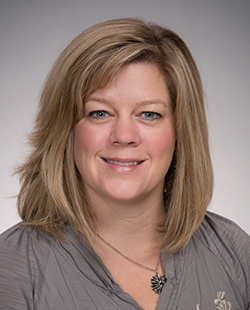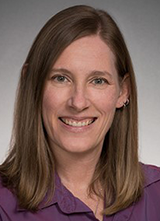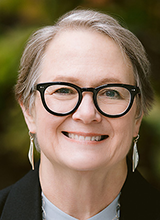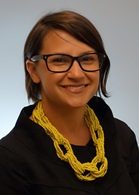Personal Statement
As a practicing psychiatrist and health services researcher, I seek to improve mental health services in medical settings, especially among underserved populations. I work with colleagues in a wide array of disciplines (medical, public health, engineering and others) to develop new ways to increase the reach of evidence-based mental health services using technology-enabled service models to leverage limited specialty mental health expertise. I have a strong interest in using consumer technologies to empower patients, improve communication with providers, and provide targeted treatment.

Personal Statement
I am a Professor and Licensed Clinical Psychologist in the University of Washington’s Department of Psychiatry and Behavioral Sciences and am Board Certified in Cognitive and Behavioral Psychology. I received my Ph.D. in clinical psychology from the UW in 2006 and returned to UW as a faculty member in 2010.
My research interests include problematic substance use (including alcohol and marijuana), posttraumatic stress disorder (PTSD), identity and self-concept, and resilience. My work focuses on investigating implicit (i.e., non-conscious or automatic) cognitive processes and processes related to self-concept and identity that contribute to the development and maintenance of maladaptive behavior and psychopathology. A second line of my work focuses on developing and increasing access to briefer, effective interventions for individuals who are trauma-exposed. Support for my work has been provided by the National Institute on Alcohol Abuse and Alcoholism, the National Institute on Drug Abuse, and the University of Washington’s Garvey Institute for Brain Health Solutions and the Addictions, Drug & Alcohol Institute. I also serve as a consultant for dissemination projects aimed at training community-based mental health workers in Cognitive Processing Therapy and other evidence-based treatment for PTSD in locally, nationally, and internationally.

Personal Statement
The transition to adulthood is the developmental period when alcohol use, marijuana use, and their associated consequences reach their lifetime peak. My scholarly interests focus on the etiology and prevention of substance use behaviors and consequences during adolescence and young/early adulthood. I have developed a highly successful portfolio of work bridging developmental, social, and motivational theory with applied prevention and intervention techniques to strategically address high-risk behaviors during the transition to adulthood.
My research addresses important questions regarding how recent marijuana legislation in Washington State impacts young adult marijuana use and consequences; what motivates young adults to engage in alcohol and marijuana use; how alcohol expectancies, alcohol use and consequences are linked in a natural feed-forward process that maintains high-risk behaviors; how developmental transitions and event timing influence use; and what are efficacious prevention and intervention strategies and for whom and under what conditions are these most effective.

Personal Statement
My primary interest is on determining how behavioral technologies can be used to improve alcohol and drug abuse outcomes for those suffering from addiction health disparities. Behavioral technologies are non-talk therapy approaches to addiction treatment, such as motivational incentives where we provide rewards for people who abstain from or reduce their drinking. This low-cost, strength based approach to addiction can be implemented in low-resources settings by non clinicians. In fact, our group is investigating how smartphones might be used to implement this treatment, allowing us to reach the millions of individuals suffering from alcohol problems worldwide.
My second research interest in evaluating the accuracy of alcohol biomarkers in addiction treatment settings. These include alcohol urine tests, such as ethyl glucuronide (EtG) and mobile phone linked Bluetooth breathalyzers. These tools allow us to accurately assess the success of alcohol treatments, as well as provide valuable research tools.
Importantly all of my research studies are conducted in collaboration with two communities that suffer disproportionately high rates of alcohol and drug misuse, 1) adults with severe mental illnesses, like schizophrenia and bipolar disorder and 2) American Indians and Alaska Natives. My research team and I work closely with community partners who are providing addiction treatment to these populations with the goal of reducing the burden of alcohol and drug use in these communities.
Personal Statement
I am interested in mood and anxiety disorders and the intersection of these with chronic medical illnesses. My approach to treatment is integrative. Working within a cognitive-behavioral framework, I use many traditional CBT methods, including hypnosis, mindfulness training, and concepts from third-generation cognitive and behavioral methods.
Personal Statement
I am a clinical psychologist with specialized training in serious mental illness and forensic psychology. I specialize in evidence-based treatments for schizophrenia spectrum and other psychotic disorders. My clinical work and research converges on individual-, family-, and systems-level supports to optimize mental health care in both community and residential settings and reduce the likelihood of criminal justice system engagement among individuals with serious mental illness.
Personal Statement
My research focuses on increasing the accessibility, efficiency, and effectiveness of community- and school-based interventions for children, adolescents, and families. I am particularly interested in (1) the identification and implementation of low-cost, high-yield practices – such as the use of measurement-based care – to reduce the gap between typical and optimal practice in schools; (2) development of individual- and organization-level implementation strategies to promote adoption and sustainment of evidence-based psychosocial interventions within a multi-tier systems of support (MTSS) framework; and (3) human-centered design (and redesign) of psychosocial and digital technologies to improve their implementability, accessibility, and effectiveness. I am the founder and Director of the School Mental Health Assessment, Research, and Training (SMART) Center, dually housed in UW’s School of Medicine and College of Education.
Personal Statement
Jane Luterek, PhD is a psychologist in the PTSD Outpatient Clinic and the Addictions Treatment Center focused primarily on serving women Veterans at the VA Puget Sound Healthcare System, Seattle Division. She is a Clinical Assistant Professor in the Department of Psychiatry and Behavioral Sciences at the University of Washington and is licensed in the State of Washington. Dr. Luterek’s research has focused on understanding the psychological sequelae of trauma and mechanisms of change in therapy associated with Alcohol Dependence and PTSD. She has advanced clinical training in the treatment of Veterans with trauma related psychological sequelae (e.g. substance use disorders, PTSD, mood disorders, borderline personality disorder) and draws from a contextual behavioral theoretical background. Dr. Luterek has expertise in Acceptance and Commitment Therapy, Prolonged Exposure, Dialectical Behavior Therapy, and Motivational Interviewing, which heavily inform her clinical practices.
Personal Statement
I am a child and adolescent psychiatrist at Seattle Children’s Hospital and UW Medicine and the director of mental health services at Echo Glen Children’s Center. I specialize in cross cultural psychiatry, transgender mental health and mental health for the deaf and hard of hearing. I strive to create active partnerships with his patients and their families to achieve the best possible outcomes.

Personal Statement
My passion for patient care is the core of who I am as a physician. As a consultation-liaison (C-L) psychiatrist, I have unique and broad teaching opportunities. The C-L role lets me teach non-psychiatrist peers, trainees from other specialties, and professionals from other disciplines. I particularly like helping providers to understand their patients’ psychiatric ailments, the complex interplay among psychiatric conditions and general medical problems, and the goals for recovery. Furthermore, I provide active support to patients and their families as they navigate our highly complex medical system with their illnesses and fears. Since the beginning of my tenure, I have been involved in the administrative aspects of medical student, resident and fellow training and curricular development. Education is the common thread that unites all of my academic activities. I have served as an Associate Program Director for 13 years at UWMC, Program Director of the Adult Psychiatry Residency program for 5 years and now work in CL psychiatry at the VA Puget Sound Health Care System. I am currently the Associate Program Director (APD) for the site and a core APD for Evaluation of our residency program.








